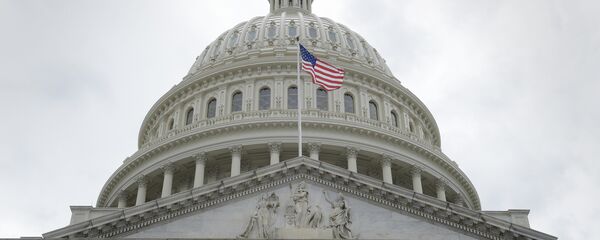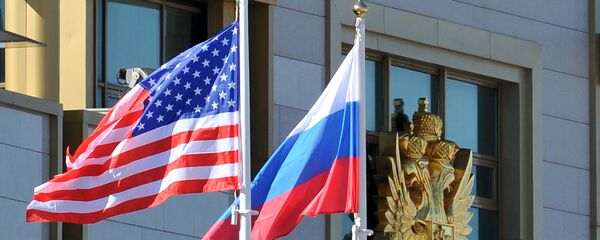The ceremony at the old Russian cemetery was attended by Russian Permanent Representative to the United Nations Vassily Nebenzia, California Governor Edmund Brown, representatives of Kashaya Pomo tribe, Alaska Natives as well as by compatriots.
"Today’s ceremony is a tribute to those, who stood at the origin of establishing friendly and fruitful contacts between Russians and Americans," Antonov said. "Joint life of our forefathers is a good example of how hard the work and the spirit of mutual respect between people, representing different cultures and continents, can help find common ground and achieve shared goals."
Fort Ross is a former Russian establishment founded in 1812. Now it is a Californian state park, included in the list of National Historic Landmarks and the National Register of Historic Places. The cemetery with 131 identified grave sites is located next to the settlement.
The cemetery was also registered as a military burial site after the representatives of the Russian Defense Ministry in the United States discovered in 2016 in the military archives that several sailors of the Russian Imperial Navy had been buried there.
READ MORE: Fort Ross Official Says Historic Russian Site in California to Remain Open
"Apart from our military servicemen, there are other Russian compatriots resting here: employees of the Russian-American Company, manufacturers and farmers from the cities of Arkhangelsk, Novgorod, Eniseysk and Tobolsk," he added. "Workers and hunters from Alaska (mostly Aleuts and Kodiak Eskimos), their family members, Native Americans baptized to Orthodox Christianity and children from mixed marriages. All of them were subjects of the Russian Empire. They swore their loyalty to the Russian Crown. This is our common cultural heritage."
"Today’s event – the unveiling and the blessing of a new large Orthodox cross reflects the desire to pass a message on to our future generations about one of the important milestones of our shared Russian-American history," Antonov said.
"I’d like to note that it is not just a burial site of Russian pioneers who were exploring the American West Coast at the beginning of the nineteenth century. This cemetery is of great ethnographic, cultural and historic importance for many nations and people of different origin: Russians, California and Alaska Natives, Creoles and Europeans. Such was the multiethnic composition of Fort Ross, the inhabitants of which used to live and work as one big family."
READ MORE: State Dept: US Looks Forward to Working With Russia, China to Denuclearize DPRK
Antonov thanked California’s authorities and particularly Brown for their support to upkeep the cemetery. He expressed gratitude to the leaders of the Kashaya Pomo tribe, indigenous people of these lands.
"I was watching a bird flying peacefully across the horizon as I was listening to the last speaker," Brown said. "The flow of that bird seemed very harmonious in contrast to most of what I find in Washington."
"It’s also good to stay on the dirt, in government we stand on paper. We are surrounded by paper," Brown noted. "So, it’s good to come out and get a little dirt on our shoes and realize we are all standing on the same soil."
During his speech Brown stressed the importance of remembering traditions, noting that they are very much represented by Fort Ross.
"We are very committed to Fort Ross. We are very committed to the Russian partnership," Brown stated. "It should be acknowledged that the funding for this project came from the state but also came from Russian investors as well."
"We have American politicians and we’ve got Russian politicians. I think that’s a good sign, but don’t tell anyone in Washington. Things are really happening here," Brown joked.
During the ceremony the Kashaya Pomo tribe representatives sang their cultural song to bless all the participants. They sang the song twice as the tribe doesn't do uneven numbers.
Tribal Chairman Dino Franklin welcomed everyone at their lands and thanked all those who helped the event happen.
"For Kashaya it’s a really big deal," Franklin stated, stressing that the cross is important for the tribe. "the cross is a symbol that we use on our regalia."
READ MORE: US Asking Russia to Return Crimea is Like Moscow Asking US to Return California
"The idea is to build a walkway from Canada to Mexico. It’s a very ambitious plan," Sweedler said. "Our cultural trail here at Fort Ross will be part of that whole."
Bishop Feodosiy of Seattle, Father Alexander Krassovsky and Father Alexey Bikon and Western America, have concluded the event by blessing the cross.





